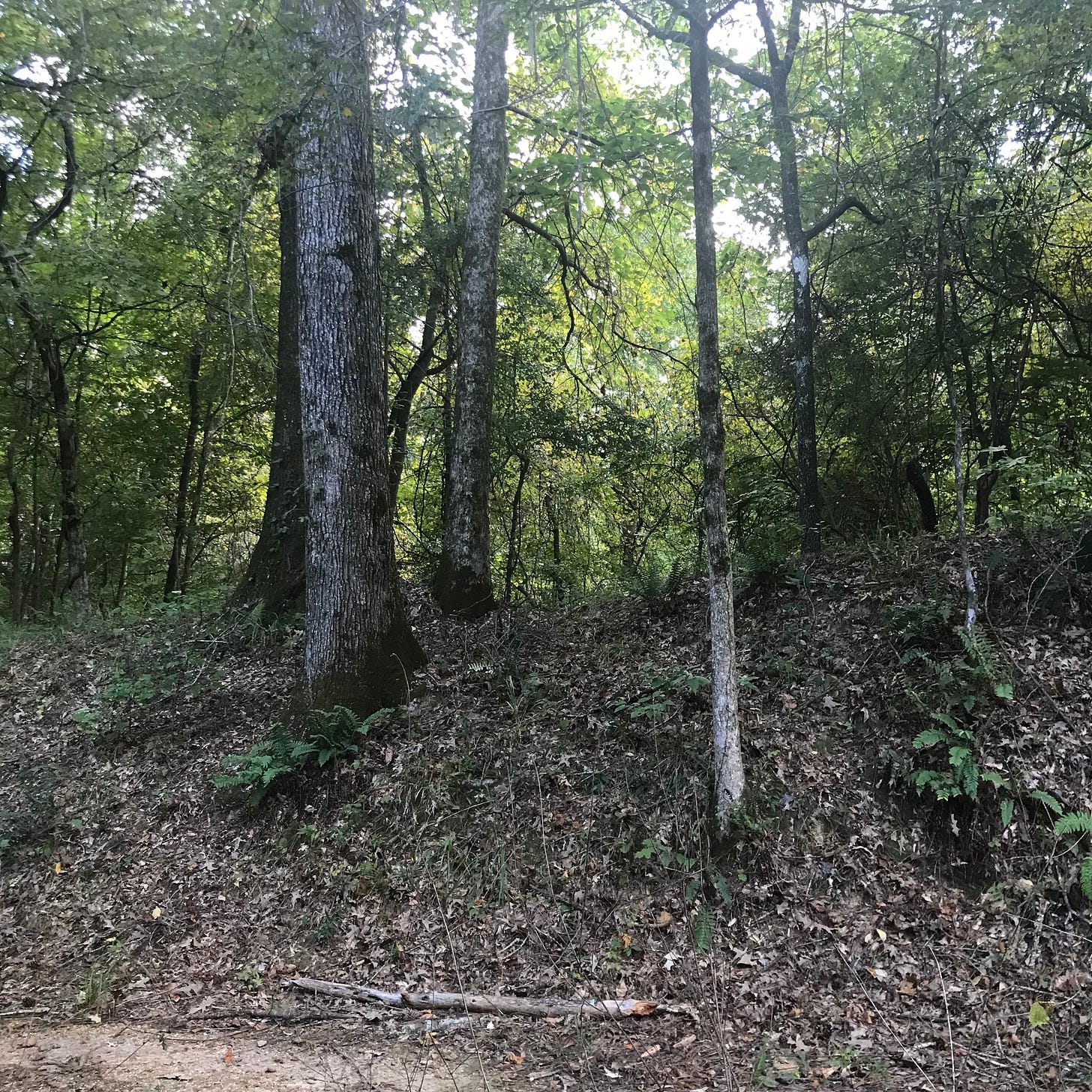The Natchez Trace
I thought alot about what it means to be doing all this art by the trace.
My residency location in Utica, MS is only 7 miles from the Natchez Trace, one of the oldest roadways. It was created by through pre-contact trade by early North American civilizations. It connects some of the oldest pre-historic mounds in North America. More recently it was the overland route which connected White Apple, one of the largest North American Indigenous metropoli located on the Mississippi River near contemporary Natchez, to the large eastern communities in the present-day Carolinas. Before Europeans conducted biological warfare in the area, the Mississippi delta was a trading hub. People from near Cahokia/St. Louis could take the rivers down and meet with tribes along the gulf and overland communities in the east. Most recently, the Natchez trace also connects me to the Asian grocery store...ahoo.
Driving to make groceries yesterday I thought about how this road was a critical link for the pre-contact economy. I thought alot about how and where this road trafficked bodies.
Slavery existed pre-contact. It was handled slightly different than chattel slavery as people were expected to work their way out of it, but thats splitting hairs. The Natchez trace was a preferred route for trafficking these bodies. When Indigenous communities fought each other, it was common practice to take prisoners of war and sell them as slaves for useful goods in trades. These middlemen (generally Chickasaw 👀) would then sell these people in a different market, using the river and overland routes to transport people away from where they may be reclaimed or freed.
For people who lived by and around the rivers and bayous, "away" meant the trace.
It wrenched people from the land, and that terror eventually scaled. The practice of Indigenous slavery weakened land sovereignty amidst colonial contact. Louisiana officials found that by instigating a quibble between the small tribal communities in the delta, they could create small wars. Warring tribal communities would take slaves to be sold away. This was ideal for officials who could benefit from the instability regardless of who "won" as there would be considerable net decrease in the Indigenous population through war death and the practice if slavery. The slaves taken in war could then be trafficked through the Natchez Trace and sold at the burgeoning Charleston slave market.
US, French, and Spanish colonies reversed dark pathways of grief that was the flow of the Natchez Trace. African people who arrived enslaved within Charleston or other inland markets could be transported through existing Indigenous trade routes to be sold to sugar plantations along the river.
I drove the Trace to Jackson. The sun was setting over the fields and woodlands with the kind of tangerine light that made me turn my Spotify to Chopin. I turned the winding road and thought of the acute dread and reality that must have set in to the victims when they made it to these particular beautiful hills.
Utica is about 70 miles away from White Apple/Natchez, which is the terminus of the trail and the port to the river. Thats only one sleep of walking away. For the enslaved, this spot was right before or after the river. For an Indigenous person who probably spent their whole life around the delta waterways, it meant that you had decidedly left the river system. For enslaved African people, you were about to reach Natchez, and thus enter the river. You were now, and probably forever, in a new biome without freedom.
For both groups, the place where I snack today held the memory of a place of reckoning. It was a cold plunge to steel yourself in comprehending the best times may lay behind you.
The trace is now a national park site with campgrounds and bathrooms and trite historical parking lots commemorating the civil war every two miles.
There are so many imprints of people here the place feels like a silent scream. Its odd because I dont feel the same way about the Mississippi River. I cross that landmark 2-3 times a week, but the pain and sorrow of that place doesn't strike me. Maybe I’m numb to the things that feel like home. Maybe its the liquidity of it all- in my mind water moves too fast to hold memories. Moving water is omnipotent and temporal, pooling all memories it holds into a vast greige swirl of various emotions. Earth is more solid. The ground can hold a thought or a worry separately for a few lifetimes undisturbed.
It makes me consider how the current I-10 may be remembered 100 years from now, as it is used in the terror of modern day trafficking which moves bodies from the south to the east outside outside of their will.
I don’t know how to neatly wrap my thoughts about this place. I want to place these feeling in a cold crisp drawer next to the bok choy and scallions, but it doesn't fit. I have found so much peace and solace in a place so close to a highway of violent memory.




Really enjoying your writing here.